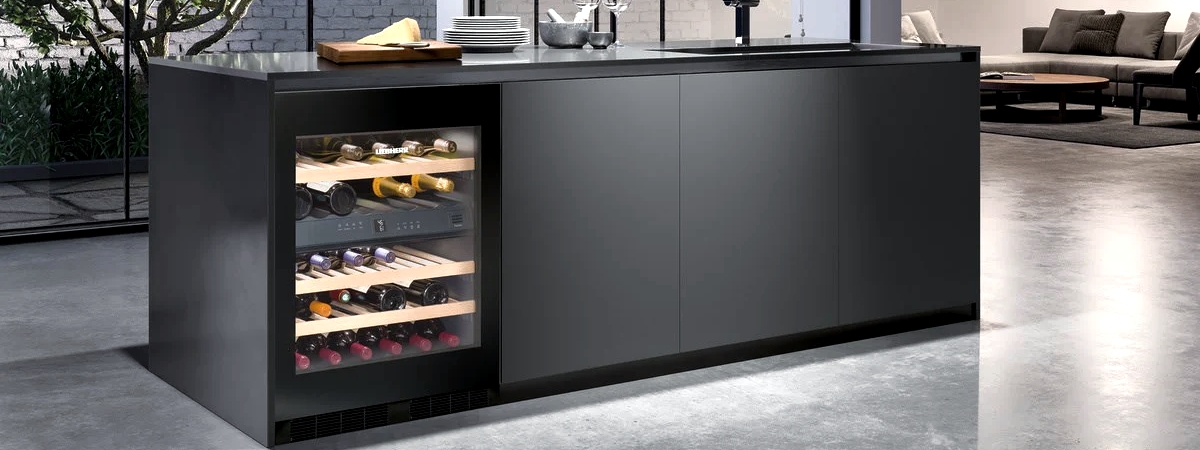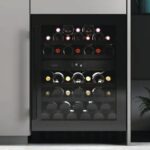Liebherr Wine Cooler Excessive Noise During Operation
Post Date: June 12, 2024

Liebherr wine coolers are renowned for their ability to create and maintain an ideal environment for your prized wine collection. However, even the most sophisticated appliances can occasionally encounter issues, such as excessive noise during operation. This can be a cause for concern, not only disrupting the tranquility of your home but also potentially indicating an underlying problem with your appliance.
The rhythmic hum of a wine cooler is a normal sound, but if the noise becomes excessive, it’s worth investigating the potential causes:
-
Faulty Compressor: The compressor is the heart of the wine cooler, responsible for circulating refrigerant and maintaining the desired temperature. A worn-out or damaged compressor can create a grinding, scraping, or loud humming noise.
-
Fan Issues: The condenser fan and evaporator fan play crucial roles in cooling the wine cooler. If these fans are malfunctioning, due to worn-out bearings, loose components, or debris buildup, they can generate excessive noise.
-
Internal Components: Loose or vibrating internal components, such as screws, brackets, or fan blades, can also contribute to rattling or clanging noises.
-
Leveling Issues: If the wine cooler is not properly leveled, it can cause internal components to vibrate and create noise.
DIY Solutions for Quieting Your Liebherr Wine Cooler:
Caution: Unplug the appliance first!
-
Inspect the Compressor:
-
Visual Check: Examine the compressor for any visible signs of damage, such as cracks, dents, or discoloration.
-
Listen for Unusual Sounds: While the compressor is running, listen for any abnormal grinding, scraping, or loud humming noises. If the noise seems to be coming from the compressor, it’s best to consult a qualified technician for further diagnosis and repair.
-
-
Check the Fans:
-
Locate the Fans: The condenser fan is usually located at the back of the wine cooler, while the evaporator fan is typically inside the cabinet, near the evaporator coils.
-
Visual Inspection: Inspect the fans for any signs of wear or damage, such as loose blades, frayed wires, or debris buildup.
-
Test the Fans: Gently rotate the fan blades by hand. If they feel rough or make grinding noises, the bearings might be worn out.
-
Clean the Fans: Use a soft brush or vacuum cleaner to remove any dust or debris accumulated on the fan blades and grills.
-
-
Tighten Internal Components:
-
Access the Interior: Carefully remove the back panel or access cover to access the interior components.
-
Visual Inspection: Check for any loose screws, brackets, or fan blades that might be causing vibrations or rattling noises.
-
Tighten Carefully: Use a screwdriver to tighten any loose screws or brackets. Avoid overtightening, as this can damage the components.
-
-
Level the Wine Cooler:
-
Check Leveling: Use a spirit level to ensure the wine cooler is level on both sides and front to back.
-
Adjust the Legs: If necessary, adjust the leveling legs at the bottom of the cooler to achieve a level position.
-
Preventive Measures to Minimize Noise Issues:
-
Regular Maintenance: Schedule regular maintenance checks with a qualified appliance technician to ensure the wine cooler is functioning properly and that all components, including the compressor and fans, are in good condition.
-
Proper Ventilation: Ensure the wine cooler has adequate ventilation around it to allow for proper heat dissipation and prevent excessive strain on the compressor and fans.
-
Avoid Overloading: Don’t overload the wine cooler with bottles, as this can restrict airflow and put additional strain on the cooling system.
If you have tried the DIY solutions listed above and your Liebherr wine cooler is still producing excessive noise, it’s best to call a qualified appliance technician for professional diagnosis and repair. They have the expertise and tools to identify the root cause of the problem, whether it’s a faulty compressor, a damaged fan, or a loose internal component, and provide the necessary repairs to restore your wine cooler to quiet operation.
Remember, excessive noise can not only be disruptive but also indicate a potential underlying issue with your appliance. By addressing these problems promptly, you can safeguard your wine cooler’s longevity and ensure it continues to provide an optimal environment for your treasured wine collection.





